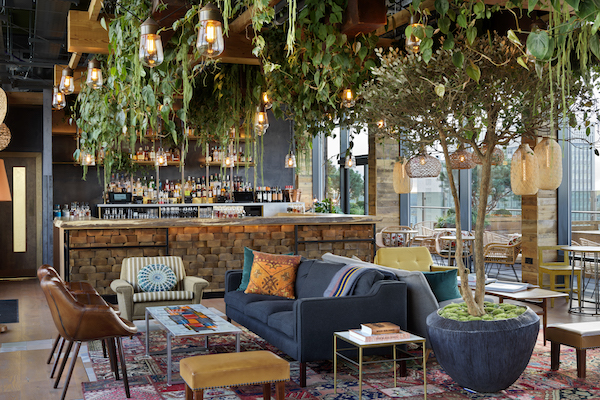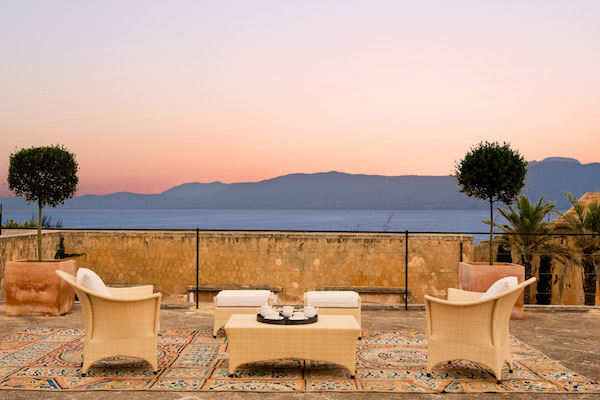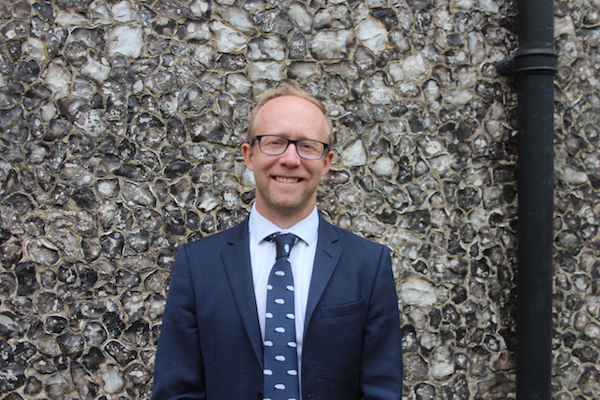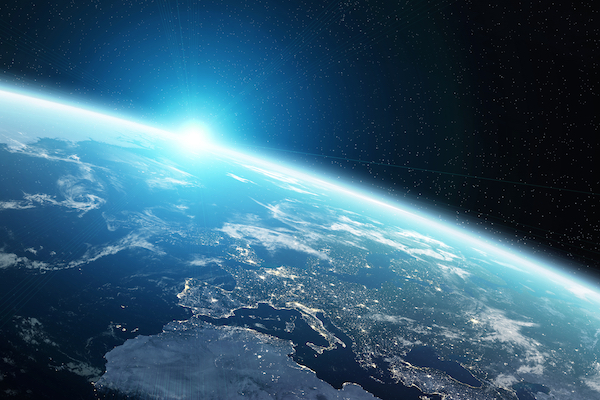
We are only a third of the way through 2020, and it is already a year unlike any other. We have seen deserted streets and shopping centres, selfless acts of bravery and dedication, ovations for our health workers, Zoom meetings, furloughed workers and self-isolation.
Will we all look back in 2021 and reminisce about that strange year when everyone was doing WhatsApp quizzes and quirky TikTok videos, and waving at each other in video conference meetings? Or will Covid-19 change our world forever?
-
What happens in a crisis, when everything you take for granted is thrown up in the air? How do people respond when all the nothing seems to make any sense?
Our working age generations are about to be tested like never before. Will we use the adversity to create something better, or should we fear the future? We are capable of kindness and compassion, but also cruelty and indifference.
We are in untested waters, but history can still teach us how humanity reacts to situations of stress and uncertainty. The 20th Century had more than its fair share of global shocks, and the consequences for mankind can be best described as mixed.
The Guardian’s Peter C Baker, writes, “Any glance at history reveals that crises and disasters have continually set the stage for change, often for the better. The global flu epidemic of 1918 helped create national health services in many European countries. The twinned crises of the Great Depression and the second world war set the stage for the modern welfare state.”
An alternative view is that the Great Depression was the touch-paper for the greatest bloodshed the world has ever seen. When economies fail, a scapegoat is usually found. It is no coincidence that the most horrific and murderous regimes our planet has seen had their roots in the Great Depression.
As Germans pushed their worthless banknotes around in wheelbarrows, Hitler harnessed the anger and sense of humiliation into the most virulent form of raging nationalism. Italy, Spain and Japan also turned to violent forms of extreme patriotism and racism.
Will Covid-19 trigger hate or love?
Pandemics can also have widely differing outcomes. At worst, they can trigger ugly xenophobia, food hoarding and mistrust of strangers.
The New Statesman’s Jeremy Cliffe posted a dire warning: “It is too early to tell what cultural impact the outbreak will have. If historical pandemics have anything to teach, it is that people rapidly search for a group to blame. The Black Death prompted witch hunts and anti-Jewish pogroms. A plague in Milan in 1629-31 saw residents turn against foreigners and particularly the city’s Spanish rulers. Captured in Alessandro Manzoni’s 1829 novel The Betrothed, this moment became a rallying point for Italian nationalism.
“Today the beginnings of a coronavirus blame game are already present: American rightists have been pointedly calling the disease 'the Wuhan virus', with Donald Trump referring to it as the 'Chinese virus' in a tweet on March 16th. Chinese diplomats meanwhile are openly criticising the US for its slow reaction, and Hungary’s government has rolled out anti-Semitic tropes about George Soros. One only has to imagine a new surge of migrants on Europe’s fringes this summer, say, to realise how quickly the virus could acquire an ugly new cultural dimension.”
Yet, conversely the fight against the virus can bring the vast majority of us together. A crisis can generate small acts of kindness and awe-inspiring courage. If this is a war against coronavirus, then it is the doctors, nurses and carers who are battling away on the frontline.
An anonymous doctor writing in The Guardian confessed: “People are frightened in a way that I have not seen before. Senior consultants have been in tears. Our junior doctors, desperate for guidance, look to a consultant body that does not have the answers. Friends in other specialties and hospitals contact me for information, wrongly hoping I may know more than they do.
“We are all worried about our young families, our elderly parents. We will carry this disease home to our loved ones on our clothes and in our own lungs. How can we not be scared? I know I am not the only one plagued by insomnia.”
And yet, they still go in to work, as brave as any soldier. If one positive thing that must come out of this, it is that our NHS workers must be respected and rewarded. We rely on them more than ever before.
There have been some horrible stories in the press about NHS workers being abused, but the brainless idiots who insult our health professionals are fortunately a tiny, yet hideous, minority.
The most moving moment came on March 26th, when the population of the UK was invited to step outside or lean out of their windows and clap for our carers and NHS workers.
I live at the end of a fairly quiet street, and I must confess that I thought this would be something that would mainly take place the tightly populated towns and cities. Feeling slightly self-conscious, along with my family, I stood outside and clapped at 8pm. I looked down the road and people were applauding, cheering and banging pots outside EVERY house. It sent a chill down my spine, a genuinely emotional occurrence.
Straight away, the WhatsApp groups and social media channels were buzzing with similar stories across the UK. One friend lives with her family in an isolated farmhouse but they were still outside their door showing their appreciation.
It was the first time in my life I can think of when the entire nation showed its appreciation for the people who look after us.
And the desire to help went beyond just the current health and care workers. When the appeal went out for volunteers for the NHS, over half a million applied within 24 hours.
A better way to live
The desire to help our fellow humans is not reserved to the UK and the NHS.
The American author and historian, Rebecca Solnit has studied the human responses to natural disasters and in 2009, she wrote a book entitled A Paradise Built in Hell: The Extraordinary Communities that Arise in Disaster. Her research was based on horrific episodes including the 1985 Mexico City earthquake, the 1989 San Francisco earthquake, the 2001 terror attacks and Hurricane Katrina.
She found that official responses often left a lot to be desired, by treating people as part of the problem to be managed, not an invaluable part of the solution. But the communities and local populations came into their own.
In fact, the disasters exposed possibilities of better ways of living.
Solnit writes: “It began as I was researching for the 100th anniversary of the 1906 earthquake in San Francisco. What I found corresponded to my own experience of the 1989 earthquake. That there had been not only an extraordinary upswelling of ordinary people reaching out to do what needed to be done to take care of each other. But in that, was an incredible sense of joy, and power and connection that was missing in everyday life.
“And one thing even the largest disasters sometimes illuminates is the ways in which everyday life can also be a kind of disaster of alienation, meaninglessness, powerlessness. A sense that people don't have the connections and meaningful work, meaningful roles that they really yearn for.
“…There is a real possibility of change. Disasters shake things loose, and the things that we regarded as fixed and unchangeable can suddenly be changed. It's been fascinating seeing people in power suddenly say, ‘Well, actually, we can put all these homeless people up in hotels. Actually, we can change unemployment insurance and sick leave. Actually, we can find $3 trillion to throw at a problem.’
“…It does remind us that everything can be profoundly different, maybe even not just because something terrible has happened. The powerful are often scrambling to restore a status quo that worked very well for them. The less powerful are often saying, ‘Wow, everything has changed. We're not ready to change it all back.’
“What happens in disasters demonstrates everything an anarchist ever wanted to believe about the triumph of civil society and the failure of institutional authority.”
How will our world change?
The hope and belief is that the global community of scientists will discover a cure, or at very least ways to effectively control the spread of Covid-19. What is less certain is what the post-coronavirus world will look like.
Simon Mair, a Research Fellow in Ecological Economics at the University of Surrey has outlined the range of potential outcomes: “From an economic perspective, there are four possible futures: a descent into barbarism, a robust state capitalism, a radical state socialism, and a transformation into a big society built on mutual aid. Versions of all of these futures are perfectly possible, if not equally desirable.
“These visions are extreme scenarios, caricatures, and likely to bleed into one another. My fear is the descent from state capitalism into barbarism. My hope is a blend of state socialism and mutual aid: a strong, democratic state that mobilises resources to build a stronger health system, prioritises protecting the vulnerable from the whims of the market and responds to and enables citizens to form mutual aid groups rather than working meaningless jobs.”
Mair’s economic analysis is well worth a read and can be found on The Conversation website.
Mair’s greatest fear is the collapse into barbarism; the scenario of nightmares. You don’t have to delve too hard to find serious thinkers who warn against economic armageddon, many of whom have been doing so for many years before the virus outbreak.
A good place to find warning about the end of civilisation is BBC Future, which is described as a home for slowing down, delving deep and shifting perspectives. Well, I suppose I have nothing else to do for the next few months...
For instance, Luke Kemp, a researcher based at the Centre for the Study of Existential Risk at the University of Cambridge, warns: “Great civilisations are not murdered. Instead, they take their own lives.”
“…Complex technological systems regularly give way to failure. So collapse may be a normal phenomenon for civilisations, regardless of their size and stage.
“And while our scale may now be global, collapse appears to happen to both sprawling empires and fledgling kingdoms alike. There is no reason to believe that greater size is armour against societal dissolution. Our tightly-coupled, globalised economic system is, if anything, more likely to make crisis spread.”
“…Think of civilisation as a poorly-built ladder. As you climb, each step that you used falls away. A fall from a height of just a few rungs is fine. Yet the higher you climb, the larger the fall. Eventually, once you reach a sufficient height, any drop from the ladder is fatal.”
Also writing on BBC Future (or should it be BBC No Future?), Rachel Nuwer shared Kemp’s worries back in 2017: “The political economist Benjamin Friedman once compared modern Western society to a stable bicycle whose wheels are kept spinning by economic growth. Should that forward-propelling motion slow or cease, the pillars that define our society – democracy, individual liberties, social tolerance and more – would begin to teeter.
“Our world would become an increasingly ugly place, one defined by a scramble over limited resources and a rejection of anyone outside of our immediate group. Should we find no way to get the wheels back in motion, we’d eventually face total societal collapse.
“Such collapses have occurred many times in human history, and no civilisation, no matter how seemingly great, is immune to the vulnerabilities that may lead a society to its end.”
Many Americans already fear the threat to society. As soon as Covid-19 hit the US, gun sales soared. A gun shop owner in North Carolina reported his best-ever sales (only matched by the aftermath of the mass shooting at Sandy Hook elementary school in Connecticut in 2012!). He explained the huge spike in sales to The Guardian: “Financial meltdown, pandemic, crime, politics… you throw it all into the pot, and you have one hell of a mess.”
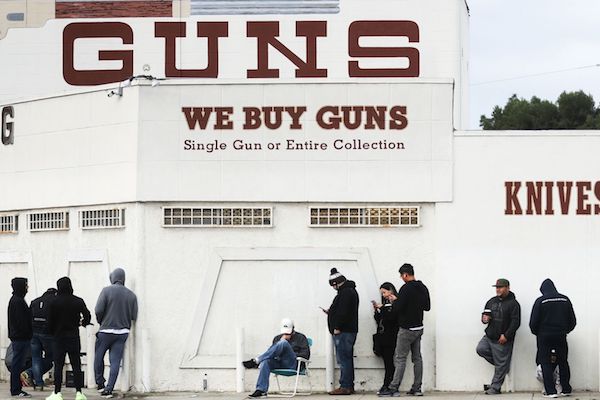
What needs to be done?
Will our post-Covid society be one that has learned the value of community or one that has descended into a post-apocalyptic wasteland? The answer is, of course, almost certainly neither. The world will just muddle along as usual.
But this is an opportunity, and we’d be foolish not to take it.
There is an inherent lack of stability in our modern society needs to be addressed. The theories of academics who predict the collapse of the society identify a common weakness in civilisations which have collapsed. It is the point when inequalities in wealth and resources become impossible to sustain.
Safa Motesharrei, a systems scientist at the University of Maryland believes there are two factors that matter for civilisation survival: ecological strain and economic stratification. The ecological category is the more widely understood and recognised path to potential doom, especially in terms of depletion of natural resources, which could be worsened by climate change.
“Disaster via economic stratification comes when elites push society toward instability and eventual collapse by hoarding huge quantities of wealth and resources.
“… [For instance] by the 3rd Century, Rome was increasingly adding new things – an army double the size, a cavalry, subdivided provinces that each needed their own bureaucracies, courts and defences – just to maintain its status quo and keep from sliding backwards. Eventually, it could no longer afford to prop up those heightened complexities. It was fiscal weakness, not war, that did the Empire in.”
Thomas Homer-Dixon, chair of global systems at the Balsillie School of International Affairs in Waterloo, Canada warns: “As poorer nations continue to disintegrate amid conflicts and natural disasters, enormous waves of migrants will stream out of failing regions, seeking refuge in more stable states. Western societies will respond with restrictions and even bans on immigration; multi-billion dollar walls and border-patrolling drones and troops; heightened security on who and what gets in; and more authoritarian, populist styles of governing.”
We need to change. As a society it has taken a horrific virus to remind us who we really rely on. It is the people who produce and distribute our food, the people who keep the lights on, the people who keep our streets safe, and the people who care for us when we are in need. But none of these are rewarded properly. The people who earn the most are largely doing pointless jobs, and are now sitting at home watching Netflix.
It cannot continue. Our essential workers have to be respected and properly rewarded.
Globalisation has allowed a very small number of billionaires to amass nauseating piles of money, which they could not spend in a thousand years. It is obscene and the richest 1% have to be held to account.
And above all, human kindness and co-operation has to be valued more highly.
My favourite quote of all time comes from Nelson Mandela, and it is as relevant now as ever:
“No one is born hating another person because of the colour of his skin, or his background, or his religion. People must learn to hate, and if they can learn to hate, they can be taught to love, for love comes more naturally to the human heart than its opposite.”




